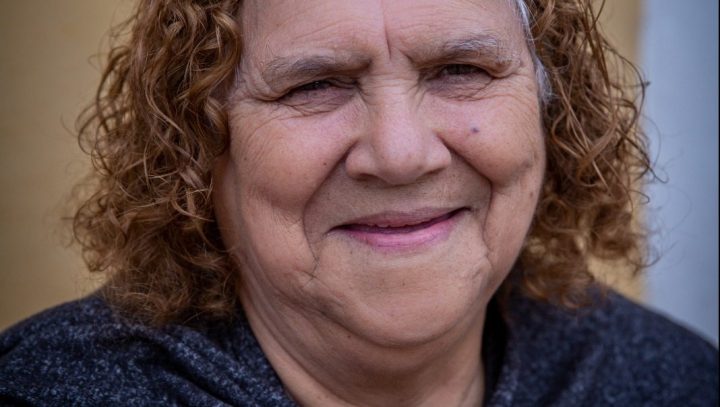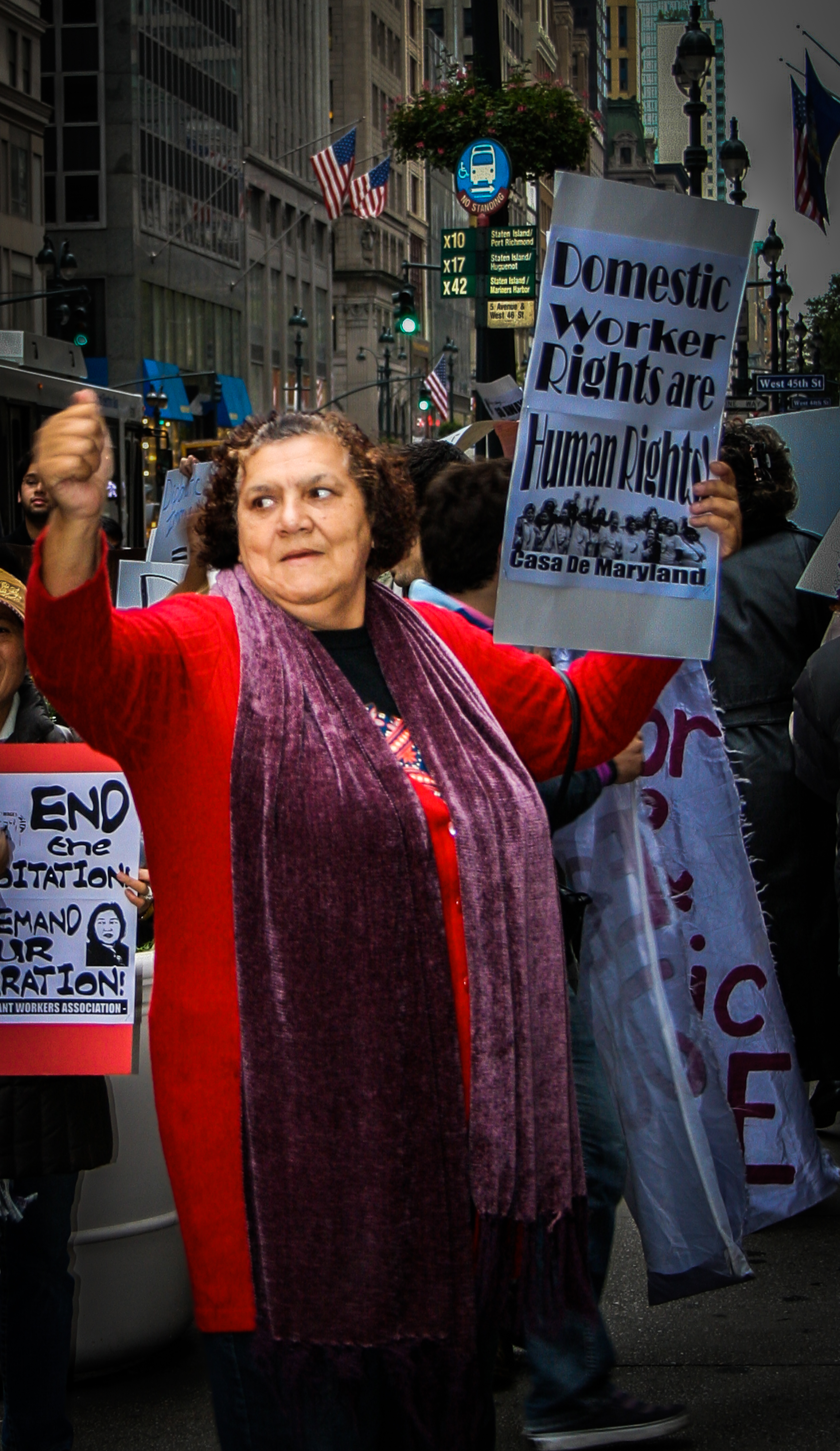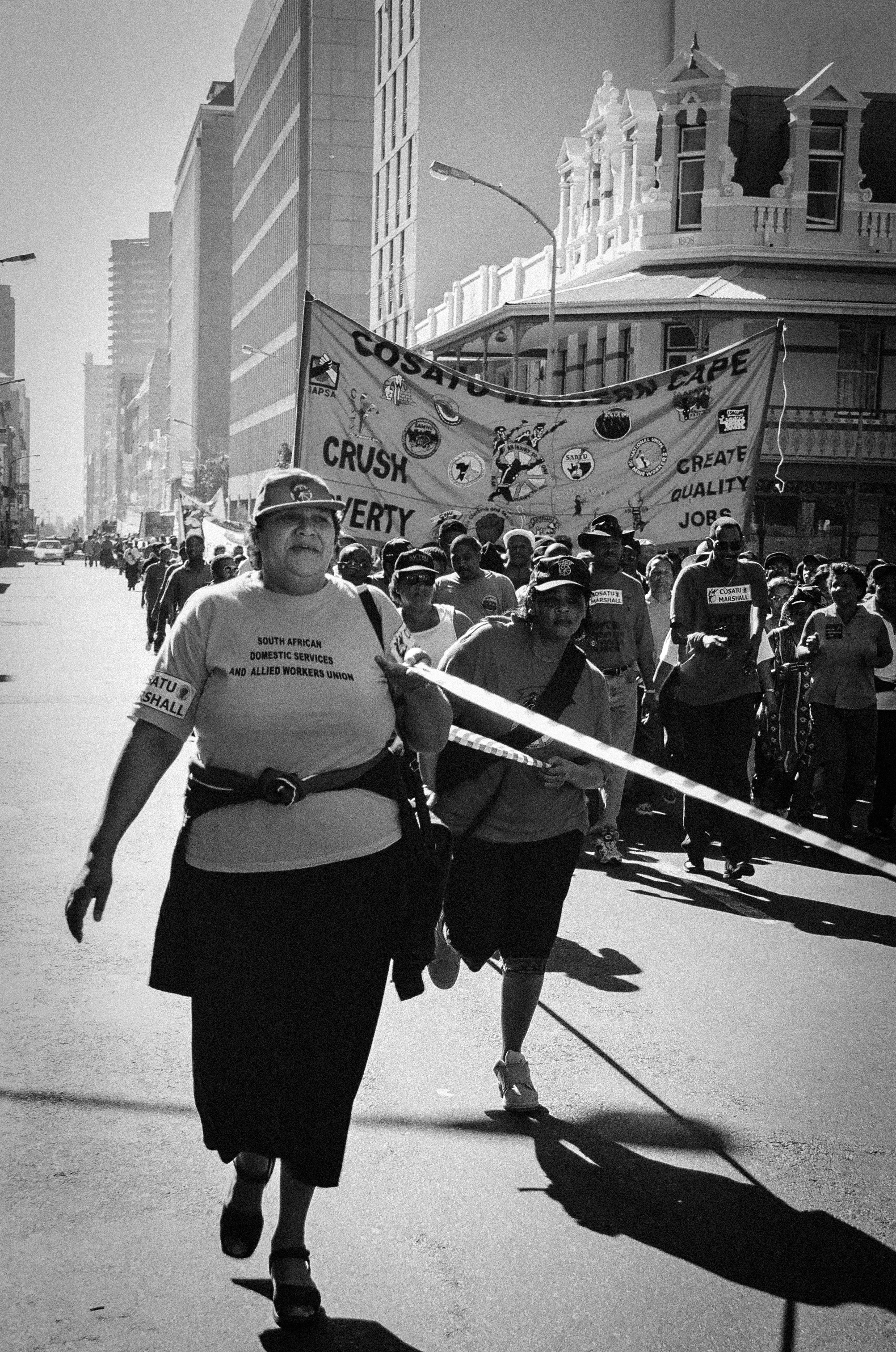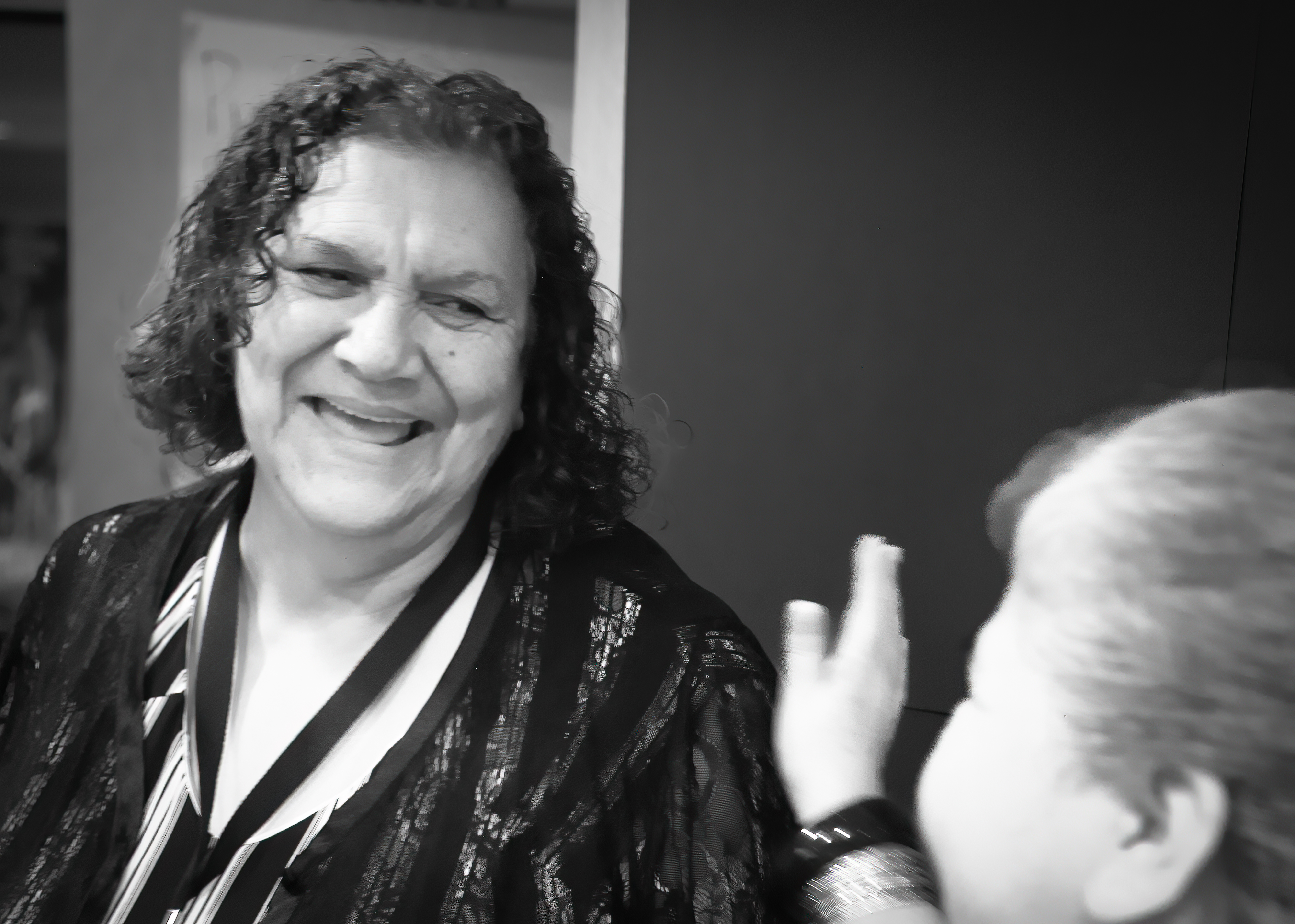TRIBUTE
Myrtle Witbooi, South Africa and global union leader who never stopped fighting for the rights of domestic workers

Myrtle Witbooi, a pioneering leader of the domestic worker movement, died on 16 January in Cape Town at the age of 75. During apartheid, she began to organise women in her employer’s garage and went on to become the president of the first global union led by women.
For 52 years Myrtle Witbooi advocated for the rights of domestic workers, upholding her presidency of South Africa’s national union of domestic workers and the International Domestic Workers Federation, throughout her struggle with a rare form of bone cancer.
Witbooi’s experience as a domestic worker under apartheid guided her life on the frontlines of both a national and global movement to recognise and protect women who were once considered “servants” without rights. She fought for domestic workers’ first legal protections in South Africa’s democracy, which set basic conditions of employment and allowed more than 100,000 women to receive maternity and unemployment insurance over the past 20 years.
In 2008, her leadership expanded to the global organisation of domestic workers, where she guided a campaign for the first international standards of protection for household workers through the International Labour Organization (ILO). She appealed to world leaders for policy recognition for “those left in the backyards” and the “women who iron your shirts”.
In 2011, the United Nations adopted the first international convention for domestic worker rights – a victory that had Witbooi proclaiming: “Today we’ve got our dignity and respect. Slaves no more, but workers just like all of us.”
When asked about her achievements as a global human rights leader, she would most often share her surprise about the course of her life, given her origins under the apartheid system.
Born on 31 August 1947, in the Moravian mission town of Genadendal, Witbooi left to work in the city of Cape Town at the age of 17.
She became a live-in domestic worker – one of the most important forms of labour to reinforce apartheid’s interconnected race and gender oppressions. As she cooked, cleaned and cared for other people’s children and elders, she began to ask why those considered “one in the family” were the least paid and universally unprotected.
“In South Africa, the law said, ‘If the master speaks, you listen’. But I went up to the woman I was working for and I said, ‘Look at me, I am a woman, just like you’.”
In 1971, she spoke publicly about the need for protections such as minimum wages and vacation time, by writing to the Cape Town regional Clarion newspaper, which quickly made her a leading voice for domestic workers’ rights.
“Why are we different, why are there no laws, why are we not seen as people?” she asked.
The apartheid state deemed her efforts to organise workers illegal. Yet, she gathered women together in discreet locations, building support, writing letters for better working conditions and encouraging a collective movement of those isolated in “the maid’s quarters” throughout South Africa.
Witbooi went on to co-found the South African Domestic Workers’ Union (Sadwu) in 1986, the first national organisation for women workers in households. She joined the ANC, working alongside Struggle leaders Desmond and Leah Tutu and Allan Boesak. At the height of South Africa’s police state in the 1980s, her activism aligned with Cosatu, bringing the representation of more than 40,000 domestic workers into the political struggle to end apartheid.
For organising workers and speaking truth to power, she was sent to prison three times and nearly lost her life in a bomb attack in Cape Town’s Community House. As she fought for women’s and workers’ rights for 27 years under apartheid, she accepted the risks to her own life for the sake of the larger freedom movement. For her, democracy had to be made, struggle by struggle, not won in a single moment.
“We wanted freedom, but it was not going to be given to us on a golden platter.”
A fierce grit and unwavering commitment to the freedom struggle anchored Witbooi’s entire activist life. “Because of my voice, I was determined, and I didn’t let anything stop me.”
She spoke out for equality, gender rights and labour justice, carrying the banner “Women won’t be free until domestic workers are free” throughout the streets of South Africa, and later the world. Her children described a “certain softness” and diplomatic ease that balanced her intense determination.
In her direct work with thousands of domestic workers, she modelled a practice of speaking from a place of pride and equality, as a means of confronting systems of injustice:
“When a domestic worker says, ‘But I am not educated?’, I said, don’t let education stop you from what you believe in.” A steadfast model of humility, as she realised international recognition, Witbooi would often recollect: “I got my degree in the kitchen.”

For organising workers and speaking truth to power, Myrtle Witbooi was sent to prison three times and nearly lost her life in a bomb attack in Cape Town’s Community House. (Photo: Jennifer Fish)
South Africa’s realisation of democracy in 1994 and its ambitious 1996 Constitution made her even more determined to demand domestic worker protections.
“We were free in South Africa, but domestic workers were still last on the agenda.”
The first labour laws emerged with the explicit exclusion of domestic workers – a contradiction Witbooi used to call the new leaders to task.
“We challenged our government. We chained ourselves to the gates of Parliament. We locked our minister up and we put away the key until they gave in.”
With these strategies, during her leadership as the president of the South African Domestic Service and Allied Workers Union (Sadsawu), South Africa passed five major labour protections that included domestic workers for the first time. These victories “on paper” gave Witbooi ground to demand better practices beyond South Africa, claiming: “Beautiful laws are not enough, because there’s a struggle in the world.”

Myrtle Witbooi’s ability to speak from her own experience reflected her most persuasive gifts. (Photo: Jennifer Fish)
For 15 years Witbooi served as president of both South Africa’s national union and the International Domestic Workers Federation. She became the international voice for domestic workers, travelling to 48 countries to advocate for the protections established in the ILO Convention 189 on Decent Work for Domestic Workers, while overseeing her national union’s daily operations and many requests for mediation.
She saw 35 countries ratify this convention and assure national legal protections for workers “in the shadow economy” worldwide.
Known widely as a principled, determined and visionary leader, Witbooi’s calming force provided an assurance of ease in moments of conflict and was a symbol of the ideals at the heart of the wider human rights movement. She balanced spontaneity with careful measure and good humour with calling those in power to task.
The ability to speak from her own experience reflected her most persuasive gifts. She considered the life stories of the domestic workers she met around the world to be her greatest source of inspiration.
Witbooi’s address to the ILO in 2010 captures her life stance as a champion for human rights and a constant reminder of the long haul to realise justice:
“If anyone would have told me 45 years ago, today, that I would be here, I would not have believed them. But I will continue fighting for domestic workers’ rights every day of my life, as I remember those early days that led me to this particular struggle which has now made its place in world history.”
Witbooi is survived by three children, Jacqui Michels, Linda Johnson and Peter Witbooi, and three grandchildren. She leaves a legacy in both national and international organisations, and tangible legislative victories from her lifetime of activism. In an interview conducted three years ago for her biography, Witbooi shared wishes for those inspired by her story:
“I want you to remember me, unite and organise. I want you to remember: if I can do it, you can do it, and together we can sing, Amandla!” DM




















 Become an Insider
Become an Insider
Comments - Please login in order to comment.